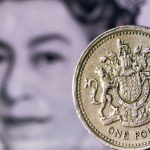Euro rose to highs unseen in 4 years against the Japanese yen, on German coalition deal and improved consumer confidence in Germany, according to a survey by Gfk Consumer research group.
EUR/USD reached a session high at 138.65 at 14:40 GMT, gaining 0.86% on a daily basis. This is the highest level since August 2009. Support was to be received at November 26-th low at 137.15, while resistance was to be seen at August 9th 2009 high at 138.66.
Earlier, on Wednesday at around 6:00 GMT, German Chancellor Angela Merkel managed to reach a coalition accord with the Social Democratic Party, which calls for minimum wage and promises to increase Government spending, without raising taxes. The decision came after exhausting 17 hours of negotiations, but puts Merkel on track for a third 4-year term to lead the nation until 2017. However, the agreement should be finalized, after the entire Social Democratic Party passes it, preceded by a referendum among its 470 000 members.
Shinichiro Kadota, a foreign-exchange strategist at Barclays Plc in Tokyo, cited by Bloomberg said: “I don’t think the euro will extend gains much from here.”
Today, the Gfk research group announced the results of its survey on consumer confidence in Germany for December. The survey encompasses 2 500 respondents being asked about their assessment of the current economic conditions in the country and their personal financial prospects. The Gfk index, which is based on the survey, reached a reading of 7.4, which is the highest level since August 2007, from a revised up value of 7.1 in November. Preliminary estimates were also pointing a reading of 7.4 in December.
Meanwhile, the minutes of Bank of Japan’s most recent meeting on policy revealed that some members of the board have their doubts about the accomplishment of the inflation objective. According to the minutes, BoJ board member Sayuri Shirai said that “attention should be paid to the downside risks” to the bank’s outlook report as “there was a high degree of uncertainty regarding developments in overseas economies and households’ employment and income situation”.
Takehiro Sato, another board member, said that consumer prices “are somewhat tilted to the downside” rather than that risks were “being largely balanced.”, while Kiuchi proposed making the central bank’s 2% inflation target more flexible.
Despite that BoJ Governor, Haruhiko Kuroda saw a significant progress towards this objective, while Japanese economy was recovering at a moderate pace, after the country has experienced 15 years of deflation. At the international financial forum in Tokyo Kuroda said that central bank’s target could be reached sometime late in the fiscal year through 2014 or early in 2015.
Elsewhere, USD/CAD hit fresh session highs at 1.0600 at 15:10 GMT, also the pair’s highest point since July 5th. USD/JPY reached a new session high at 102.18 at 14:55 GMT, after which the pair consolidated at 102.11, up 0.82% for the day. EUR/USD also climbed to a new daily high at 1.3613 at 9:40 GMT, also the pair’s highest point since October 31st, after which consolidation followed at 1.3610, rising 0.27% for the day.





